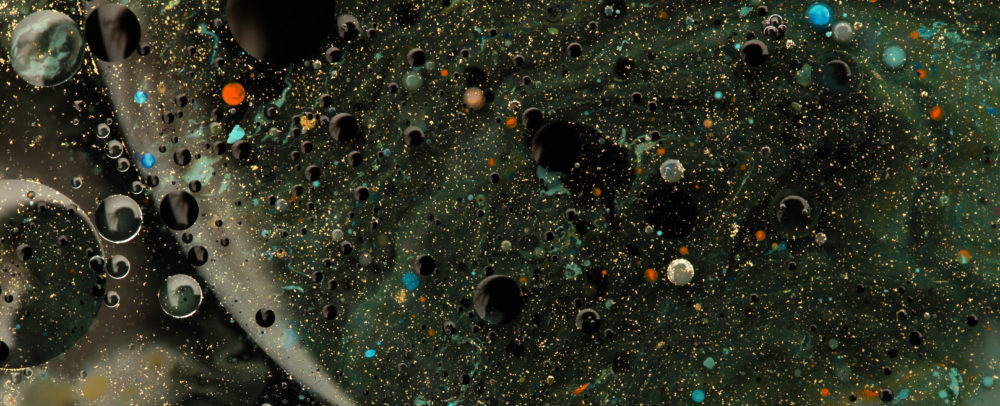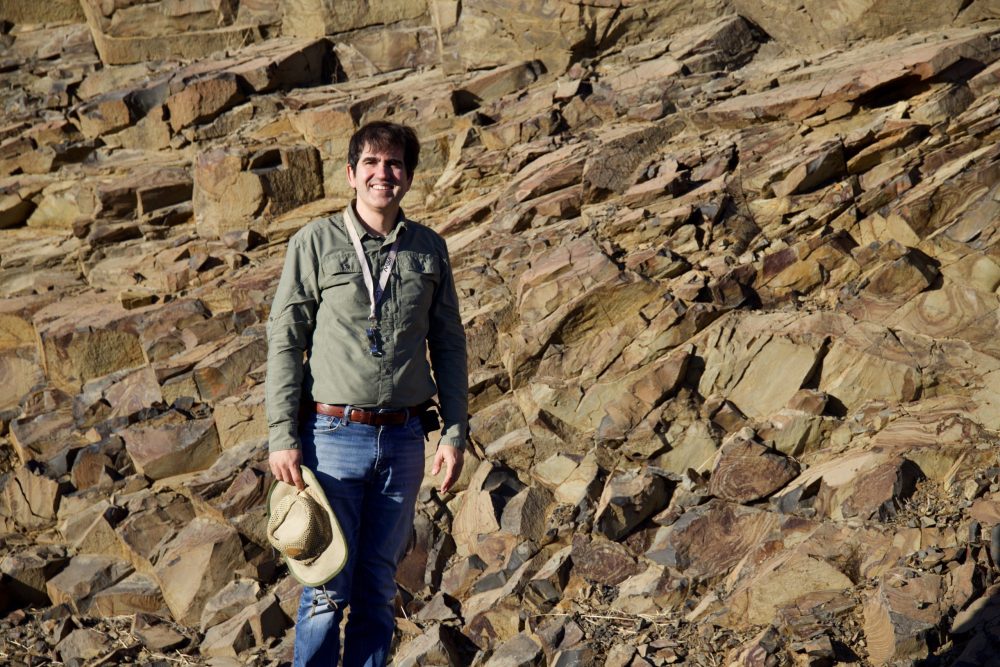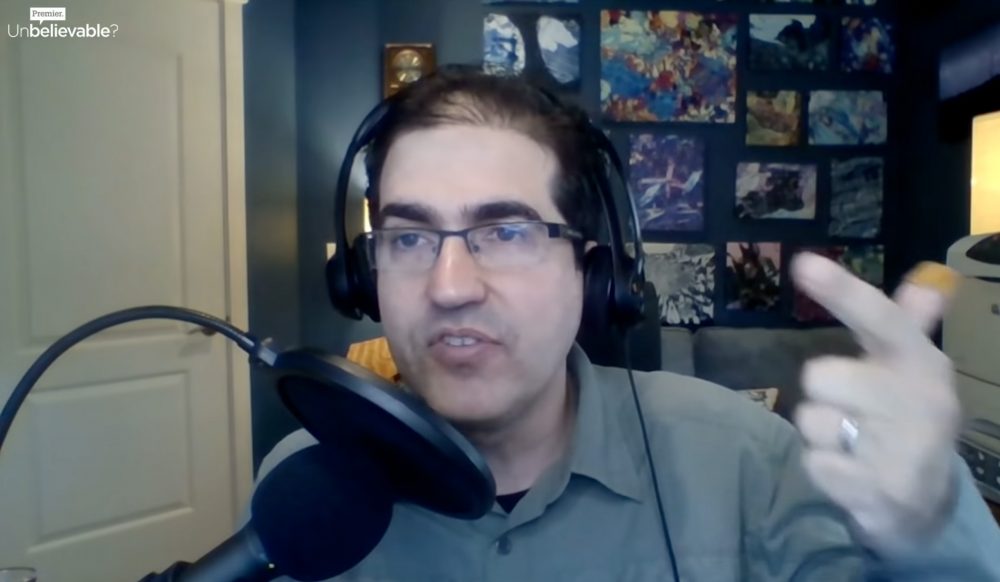


More from Casey Luskin on Our Intelligently Designed Planet—Plus Q&A
Today’s ID the Future continues geologist Casey Luskin’s presentation about how Earth is fine tuned in numerous ways for life, a talk he gave at the 2022 Dallas Conference on Science and Faith. Here in the second half, he highlights the many ways Earth’s precise mix of atmospheric gases is strikingly fit for life. On top of that (or rather, beneath that), Earth’s active geology and water-rich surface—unique in our solar system—are masterful at helping maintain our life-friendly atmosphere over long ages. Luskin argues that these and other finely tuned characteristics of planet Earth strongly suggest intelligent design. He then offers an additional design argument, this one aesthetic in nature, and then takes questions from the audience. Part 1 of his talk Read More ›

Casey Luskin on the Intelligent Design of Earth for Life
On today’s ID the Future geologist Casey Luskin explains how Earth contains many intricate geological processes required for life. He argues that, taken together, this points to intelligent design rather than dumb luck. This episode is the first half of a talk Dr. Luskin presented at the 2022 Dallas Conference on Science and Faith. Stay tuned for Pt. 2 and a Q&A with his original audience.

Casey Luskin on Why He Favors ID over Theistic Evolution
Today’s ID the Future continues intelligent design theorist Casey Luskin’s conversation with Apologetics 315 podcast hosts Brian Auten and Chad Gross. Here in Part 2, Luskin give a peek behind the scenes of ID 3.0, the current research program inspired by the intelligent design framework. Luskin is then asked to explain his reservations about theistic evolution, and Luskin points out the evidential, rhetorical, and logical problems he sees with the brand of theistic evolution advocated by Francis Collins and Biologos. What about the future of the intelligent design movement? Luskin says he’s optimistic, both because of the exciting research and publication breakthroughs of late, and because of the many converts he’s seeing to the ID framework. According to Luskin, many of these Read More ›

Casey Luskin Champions Intelligent Design at Apologetics 315
Today’s ID the Future features Apologetics 315 podcast hosts Brian Auten and Chad Gross interviewing scientist Casey Luskin about the past, present, and exciting future of the intelligent design movement. Here in Part 1, Luskin tells how he got into ID movement, gives the back story on the birth of a promising intelligent design research program known as ID 3.0, and relates how he ended up rushing back from his geology work in South Africa at the front end of the Covid-19 pandemic to rejoin Discovery Institute. From there Auten and Gross push Luskin to provide a clear, easily grasped definition of intelligent design and to explain how it differs from creationism. Luskin also makes the case that intelligent design Read More ›

Casey Luskin and Adam Shapiro Debate Intelligent Design, Pt. 2
This ID the Future continues the debate between design theorist Casey Luskin, an editor of The Comprehensive Guide to Science and Faith, and science historian Adam Shapiro, co-author of Science and Religion: A Very Short Introduction. Justin Brierley, of the popular British debate program Unbelievable?, hosts. In this second half of the conversation, Shapiro argues that intelligent design’s popularity seems to have waned. Casey Luskin counters, arguing that the number and frequency of New York Times articles on ID is a superficial metric and that the ID research program is exploding, with the number of peer-reviewed ID papers growing every year, and the number of interested graduate students, ID hubs, and conferences expanding around the world, including ID conferences attended by high-level scientists, including Read More ›

Casey Luskin and Adam Shapiro Debate Intelligent Design, Pt. 1
On today’s ID the Future, design theorist Casey Luskin, an editor of The Comprehensive Guide to Science and Faith, and science historian Adam Shapiro, co-author of Science and Religion: A Very Short Introduction, debate the meaning and prospects of intelligent design. Here in this first half of their conversation with host Justin Brierley of the Unbelievable? podcast, the focus is on how the term intelligent design is used, or misused, and its relationship to theological issues. The interview is used by permission of Justin Brierley.

Casey Luskin: Biogeography Is No Friend of Common Descent
On this ID the Future, geologist Casey Luskin discusses biogeography and the problems it poses for the idea of universal common descent. To make it work, evolutionists have to propose, for instance, that old world monkeys rafted across the Atlantic from Africa to South America on a natural raft. Really? That’s some raft. And how did the monkeys not starve to death? Or die of thirst? They couldn’t drink salty ocean water, after all. And talk about a genetic bottleneck! That’s just one of several problems Luskin raises with the idea that all species gradually evolved from a universal common ancestor. In his conversation with host Emily Reeves, he also touches on the problem of convergence, as when two creatures Read More ›

Casey Luskin on the Nature and Fruits of Intelligent Design
On today’s ID the Future, guest Casey Luskin and host Eric Anderson untangle the differences between creationism, intelligent design, and theistic evolution. There are important distinctions as well as areas of overlap, Luskin explains, but the theory of intelligent design focuses on the book of nature, rather than on the Bible or some other sacred book, and offers evidence that certain features of the natural world are best explained by reference to an intelligent cause. The case for intelligent design includes negative arguments against competitor explanations, such as neo-Darwinism, as well as positive evidence for design. And Luskin notes that increasingly this paradigm is fueling fruitful scientific research in everything from protein science to pharmacology and cosmology. To support this Read More ›

Casey Luskin on Successfully Defending Intelligent Design
On today’s ID the Future, Casey Luskin further discusses his recent essay, “What Is Intelligent Design and How Should We Defend It,” in the new book The Comprehensive Guide to Science and Faith. In his conversation with host Eric Anderson, Luskin rebuts the claims that intelligent design isn’t science (it is), doesn’t produce peer-reviewed research (it does), and is just a negative argument against evolution. He also offers advice on handling personal attacks and objections that you’ve never encountered before. To consider supporting the work of Discovery Institute’s Center for Science and Culture and its brave scientists, click here for options.